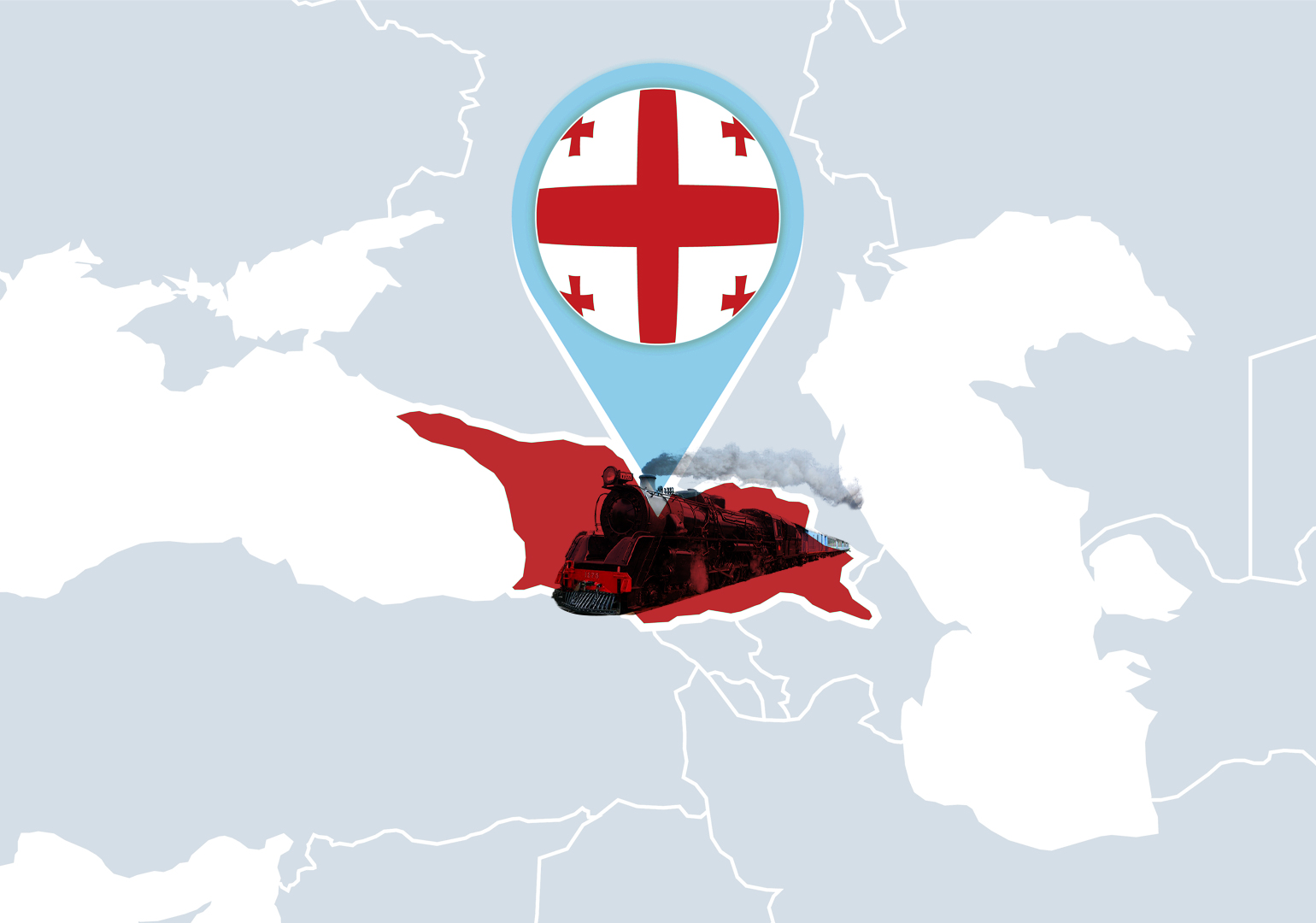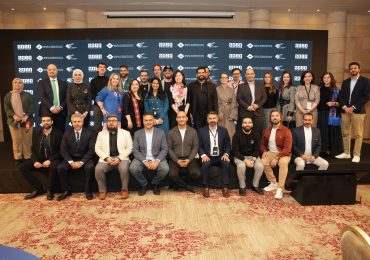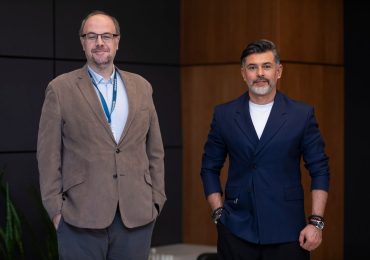Since gaining its independence, Georgia has long sought to take advantage of its strategically important location on the crossroads between Europe and Asia and establish itself as a significant transit hub. This endeavour has been slowly advanced by some successful infrastructure and development projects. Following the launch of the Baku-Tbilisi-Ceyhan oil pipeline and the TRACECA, an international transport programme involving the EU and 12 member states of the Eastern European, Caucasus and Central Asian region, the country’s political elite declared Georgia’s transit potential as one of the most essential and paramount components for building peace and stability in the South Caucasus region through becoming an essential transit point for other countries. Precisely for that purpose, Eduard Shevardnadze proposed the idea to start working on the Baku-Tbilisi-Kars project with Turkey which then-Turkish President Süleyman Demirel endorsed.
Georgia’s importance as a transit hub was revitalized in 2013, when the President of China, Xi Jinping, launched the Belt and Road Initiative (BRI) to develop a connection with the West. The BRI is comprised of two parts: Silk Road Economic Belt and Maritime Silk Road, jointly distinguishing set of projects to connect China to Europe through land and sea, respectively. BRI has gradually gained global recognition and has been increasingly viewed as one of the most significant initiatives of the century.
Even though Georgia was not originally envisioned as part of BRI, it has gradually increased cooperation with China. Georgia soon managed to position itself in the initiative and even hosted international forums dedicated to it. Currently, BRI consists of six main transit corridors, which have been competing for prominence and becoming a default route for transporting cargo between East and West. One of the trade corridors connects China, Kazakhstan, Azerbaijan, Georgia, Turkey, and ultimately has Europe as its final destination. This route, which is often referred to as BRI’s Middle Corridor presents a great opportunity for Georgia’s transit aspirations. Despite that, Georgia’s strife to become one of the major transit hubs has been marked by repeated failures with regard to implementing larger-scale initiatives required for the development of the country’s transit role. Although Georgia possesses a 190-mile-long Black Sea coastline, it still does not have a deep-sea port, resulting in limited overall maritime capacity. This issue dramatically undermines Georgia’s role as a transit country. Georgian governments have repeatedly sought to develop a deep-sea port in Anaklia. Former President Mikheil Saakashvili promoted the development of a deep-sea port at the site, which he dubbed Lazika. However, the project did not succeed as the Georgian Dream government shut down Saakashvili’s Lazika project after coming to power in 2012. However, the initiative was resurrected under the framework of the Anaklia deep-sea project in 2015. The construction of the first deep-sea port in Georgia started in 2017. Yet, the Ministry of Regional Development and Infrastructure of Georgia cancelled the deal with the Anaklia Development Consortium for the construction of the port in 2020. The official reason invoked was non-compliance with financial accountability. While there has not yet been a new tender announcement for companies to take over the project, Georgia’s prospects to become a major transit hub between Europe and Asia remain at stake.
This shortcoming has posed a major impediment to the country’s aspirations of becoming a significant hub for the Eurasian transit system. In the meantime, the Northern Corridor has been much more attractive as it avoids customs checks, as Kazakhstan, Russia and Belarus are part of a customs union. However, considering the current Russian aggression in Ukraine and a plethora of tough sanctions imposed by the US and EU, the Northern Corridor is destined to lose its importance. This significantly increases the prominence of the Middle Corridor as it has a real advantage to emerge as a competitive route and become one of the main transit corridors allowing goods to arrive in Europe from Asia. Strikingly, the Middle Corridor is the shortest way between the two continents and can allow cargo to be transported in 15 days. However, the infrastructure issues, the absence of a deep-sea port in Georgia and other issues have impeded the importance of the route. Now, as Russia and Belarus are severely sanctioned and isolated, the Middle Corridor could be effectively exploited by the EU along with China and other East Asian countries as the main alternative route. The EU has already contributed a great deal to the creation of the route, including the development of railway traffic across the Caspian Sea. Therefore, it would be reasonable if the EU actively revitalizes its intentions to cooperate with the South Caucasus as well as Central Asia with regard to further investments in the development of free and sustainable transit along the corridor. Considering energy resources in Azerbaijan and Central Asia, the EU could also diversify its energy supplies and decrease its dependence on Russian gas, which according to statements of EU officials at the Versailles Summit, has become a new priority for the EU in the wake of the Russian invasion of Ukraine.
The EU could work with China on this together and support initiatives along the Middle Corridor. Importantly, the two actors could invest together in the construction of the Anaklia deep-water port. The port, which awaits a new tender for construction, has the potential to become the largest deep-water port on the Black Sea and serve an important role in shipping cargo from Asia to Europe. At the same time, the Georgian government should focus on the revitalization of the Anaklia deep-sea project in order to help boost Georgia’s transportation and transit role. The ruling party should closely cooperate with the EU and China and take advantage of the current situation. This could be effectively accomplished in cooperation with the Azerbaijani government as well which has recently expressed interest in transporting its energy resources to Europe.

















